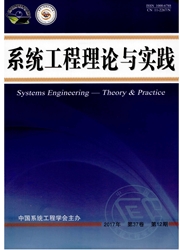

 中文摘要:
中文摘要:
研究了预售环境下,存在消费者估值不确定和消费者搜索成本时,销售商的最优定价和配给决策.建立一个两阶段模型,考虑一个销售商出售单一新产品给若干具有战略行为的消费者,消费者根据自身效用最大化原则选择最佳购买时机,销售商则考虑消费者的战略行为,决策最优的两期价格和预售期配给量.研究结果表明,预售期的配给量取决于单位产品的采购成本.当且仅当单位产品的采购成本介于特定范围内时,销售商应采用预售策略,此时折扣预售策略总是销售商的最佳选择.否则销售商应采用正常销售策略.研究还表明,当消费者的风险成本系数较低时,消费者的搜索成本越高,销售商的预售价格和总利润越低.否则,消费者的搜索成本越高,销售商的预售价格和总利润越高.
 英文摘要:
英文摘要:
We explore the optimal advance selling strategy considering consumer valuation uncertainty and seeking cost. We build a two-period model and consider a seller that sells a single product to strategic consumers, who make purchasing decisions to maximize their consumer utility. The seller needs to set the prices in both selling periods and the capacity level for the advance period. We show that the capacity level for the advance period depends on the cost of unit product. Specifically, when the cost of unit product exceeds a specific threshold, the seller should always adopt the advance selling strategy. In this case, the discount advance selling strategy is optimal. Otherwise, the regular selling strategy is the best choice for the seller. In addition, we find that when the risk cost index is relatively low, a higher consumer seeking cost leads to lower advance selling price and total profit. Otherwise, the higher the seeking cost is, the higher is the advance selling price and the larger are the total profits.
 同期刊论文项目
同期刊论文项目
 同项目期刊论文
同项目期刊论文
 期刊信息
期刊信息
